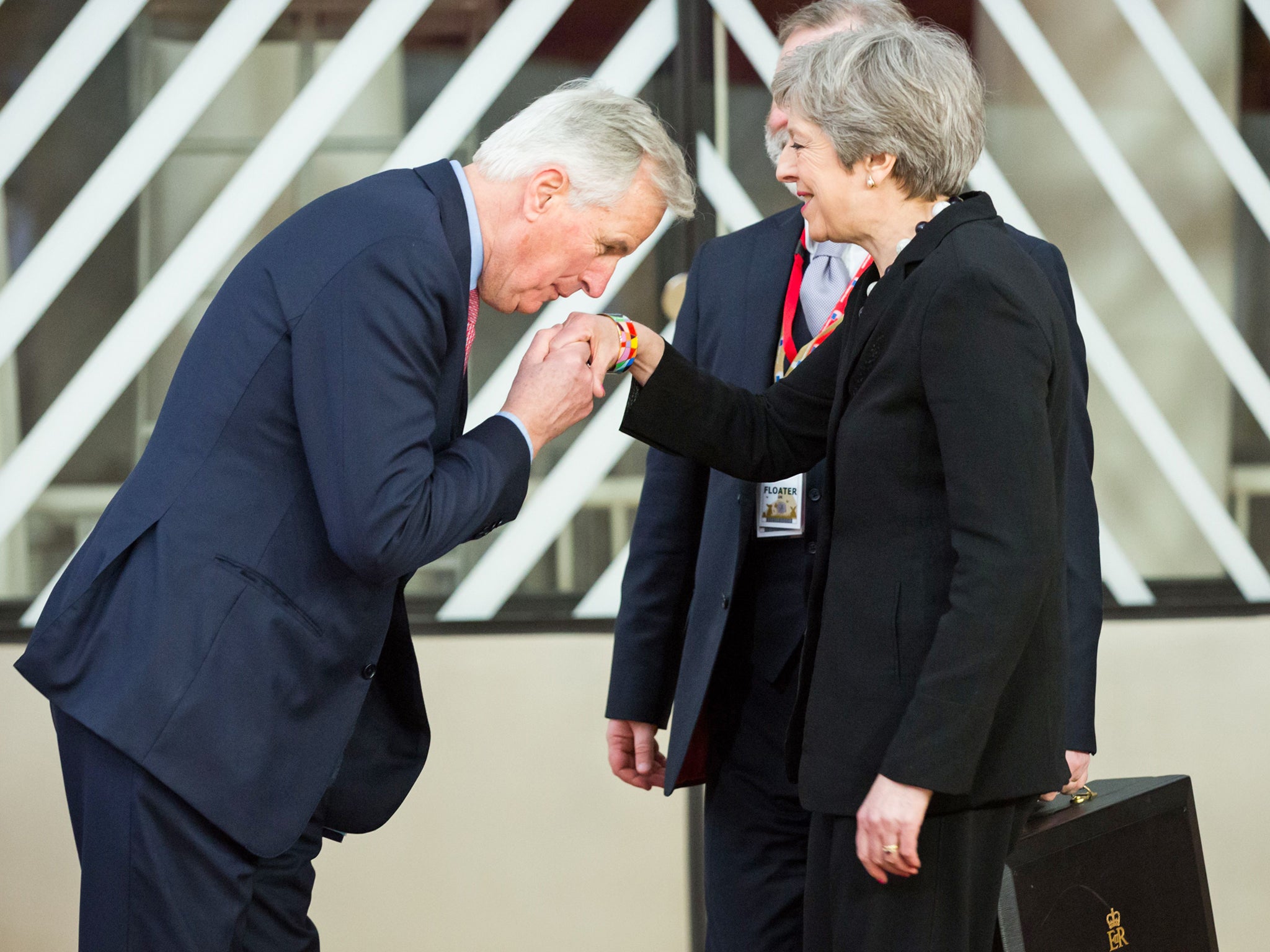The last 24 hours prove the EU is Britain’s only true friend
As Trump largely ignores a suspected Russian nerve agent attack on British soil, the draft UK-EU treaty for future relations contains an unusual degree of agreement on maintaining and even deepening the existing levels of co-operation


Like any divorce, Brexit is a time for finding out who your real friends are. Despite EU Commission President Jean-Claude Juncker’s careless congratulatory note to President Vladimir Putin and some earlier quibbles, Theresa May’s 27 counterparts around the dinner table agreed to make a suitable diplomatic gesture to the Russians in solidarity with the UK. Among other national moves, the EU will be withdrawing its ambassador to the Russian Federation in protest at the Russians’ extra-legal activities on British (ie EU) soil. (He’s a German named Marcus Ederer, by the way).
The EU say, in a well-tempered statement, that the Russians are very likely involved in the attempted murder of the Skripals and that there is no other plausible explanation.
It is fair to say that this was not in Putin’s little plan. Hoping that Brexit would weaken both the UK and the rest of Europe, he has found much more unity than he bargained for. He judged, wrongly, that the assassination of a double-agent wouldn’t bother anyone but the British. Indeed, one of the more curious aspects of the Brexit process is how both sides have become more aware of what might be lost as a result of Brexit – and seem extremely anxious to preserve some of the most important benefits of UK participation in and partnership with the EU, even after Brexit.
Hence the initial offer by Theresa May (or threat, depending on your view) in her original Lancaster House speech to put security, defence and foreign policy into the Brexit “pot” for negotiation. She got some negative publicity for that – after all, the war on terror shouldn’t be treated as a bargaining chip – but the basic idea of continuing co-operation even after Brexit has in fact been taken up by the EU 27. In the draft UK-EU treaty for future relations there is an unusual amount of agreement on maintaining and even deepening the existing levels of co-operation.
It would ne be nice to think all of this was based on our common shared values and commitment to democracy, the rule of law and freedom of speech – all aspects of life under severe pressure in Russia. That is true, to be fair; but the pursuit of base national interests are never very far away, whatever the idealistic rhetoric that surrounds EU business and this is no different. One of the few strengths the UK possesses is its expertise in intelligence and security (despite some notable failures over Iraq), its small but effective armed forces, its nuclear deterrent and the sheer size of its economy and defence industry.
If I were an Estonian glancing towards Putin’s territorial ambitions, or a Finn, Czech or Pole with painful memories of Russian/Soviet occupation, I might well feel more comfortable with the UK firmly locked in to a Europe-wide defence structure. This, in fact, already exists in the European Union, though it is looser than the commitments demanded by Nato for mutual assistance when under attack – but it is something and worth keeping. Besides, when Donald Trump simply ignores the Salisbury attack in his communications with Russia, and has complained about the Europeans’ lack of spending on defence, you have to wonder precisely how reliable an ally the United States may prove to be. The UK needs the EU to add to its clout and the EU needs the UK for the same reason.
So it is, then, that Vladimir Putin has managed to engineer the opposite of what he intended. He might have terrified Russian dissidents abroad; but he has also managed to unite the Europeans in a way few might have thought possible. It has dawned on the chancellors, prime ministers and presidents gathered in Brussels that what occurred in Wiltshire could have happened in Burgundy or Bavaria or Barcelona, and have drawn the obvious conclusion; that we need to look out for one another when under threat from the Russian secret police, radical Islamists and far right terror alike. Russia is relatively weaker as a direct result of the Skripal attack. An own goal.
What a timely lesson this is in the practical advantages and power of a united Europe standing up to a superpower, Brexit or not. Maybe we can do the same with Trump’s vastly damaging trade war?
Join our commenting forum
Join thought-provoking conversations, follow other Independent readers and see their replies
Comments